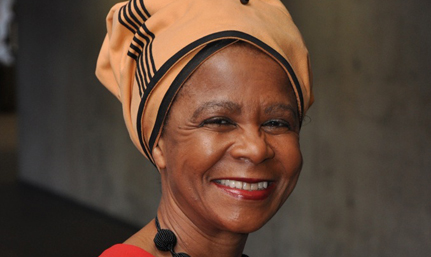Latest News Archive
Please select Category, Year, and then Month to display items
10 March 2022
|
Story Anthony Mthembu
|
Photo Unsplash
 The No Student Hungry team gearing up to start distributing food parcels to the selected students.
The No Student Hungry team gearing up to start distributing food parcels to the selected students.
The UFS is one of the many institutions of higher learning where food insecurity is an active issue. However, the
No Student Hungry Programme is one of the initiatives launched at the university to assist in fighting food insecurity at the institution.
The purpose of the programme
Since its inception in 2011, the initiative has assisted many students in acquiring a healthy meal. Additionally, the Food Environment Office also hands out food packages, so that students can continue to achieve academically. “We are trying to develop a healthy environment for students and make it easier for them to have a nice and healthy meal,” stated Annelize Visagie, who heads the Food Environment Office at the UFS. The Food Environment programme is spread out on all three campuses, each with its own facilitators. Furthermore, the programme mainly caters for students who are not funded by the National Student Financial Aid Scheme (NSFAS) but who are excelling academically. The abovementioned students apply for assistance online, and a list is then drawn up of students who receive assistance for the year.
Alternative solutions to keep the initiative running
On the Bloemfontein Campus, the No Student Hungry Programme will be catering for 200 students in the 2022 academic year, assisting them with a daily nutritious meal. Additional food parcels are also handed out to provide further assistance. “We give food parcels to the students on the list every Tuesday and Thursday at the Thakaneng Bridge,” Visagie highlighted. However, she argues that catering for the student population through this programme can be a challenge, as the demand for assistance is growing rapidly and the ability to assist is limited. The programme relies on partnerships and sponsors to assist the student body. In fact, the coordinators of the programme currently have a memorandum of understanding with Tiger Brands according to which they deliver around 100 food parcels for distribution.
In addition, the coordinators have put in place alternative measures to ensure that they can provide more food to students. “The
Kovsie Act Office, in partnership with the
Department of Sustainable Food Systems and Development, has started a food garden where healthy and nutritious produce are grown, in order to add value to the distribution,” she indicated. Although the programme can only assist to a point, students who are in desperate need of assistance are never turned away. In fact, the
Social Support Unit at Thakaneng Bridge usually assists students with food vouchers for a maximum of four days.
A commitment to teaching healthy eating habits
The programme is not only committed to curbing food insecurity, but also to ensuring that students have a healthy and balanced diet. As such, a booklet is being issued by the
Department of Nutrition and Dietetics in collaboration with the Department of Sustainable Food Systems and Development, which contains ways in which students can make a healthy meal using some of the ingredients offered in the food parcels.
“We want to teach students how to eat healthy in the cheapest way, because they don’t have a lot of money to buy expensive food products,” Visagie argued.
Inaugural lecture challenges leaders in higher education
2012-10-30
|

|
Dr Mamphela Ramphele
Photo: Stephen Collett
29 October 2012 |
Lecture (Pdf format)
According to international statistics, South Africa’s school performance is rated 140th out of 144 countries. South Africa is also ranked 143rd out of 144 countries when it comes to the quality of mathematics and science. About 600 000 South African graduates are unemployed and about 500 000 learners are failed by our current education system.
Dr Mamphela Ramphele brought these shocking statistics to the light at the inaugural lecture of the Annual Prestige Lecture at the Faculty of Education on Thursday 25 October 2012 at the University of the Free State (UFS).
This lecture will henceforth be known as the Mamphela Ramphele Prestige Lecture.
Dr Ramphelefocused her lecture on ‘Educating the 21st century citizen’.
“One of the defining characteristics of the 21st century is the vast number of choices that confront us every day at a personal, professional and political level.”
She asked if 21st century South Africans are equipped with the skills to make the choices that confront them daily.
“The failure to transform our apartheid education into one characterized by equity and excellence, is producing graduates who lack self-confidence.”
Dr Ramphele said that in South Africa about 1/6th of government expenditure goes to education, but the outcomes remain shocking.
For Dr Ramphele the answer lies in creating platforms for open conversation about South Africa’s painful past and the agenda for radical socio-economic restructuring should include the fundamental transformation of education.
She praised the UFS, under its current inspirational leadership, for its role as change agents through the education.
Prof. Rita Niemann, senior professor at the Faculty said the Annual Mamphela Ramphele lecture is to further expand and celebrate education in South Africa.
“Dr Ramphela has given us so much food for thought by challenging leaders in higher education to speak out about the questionable state of education in South Africa and to become engaged in the ‘revolution of the spirit’ in order to deliver citizens who own and shape the country.”